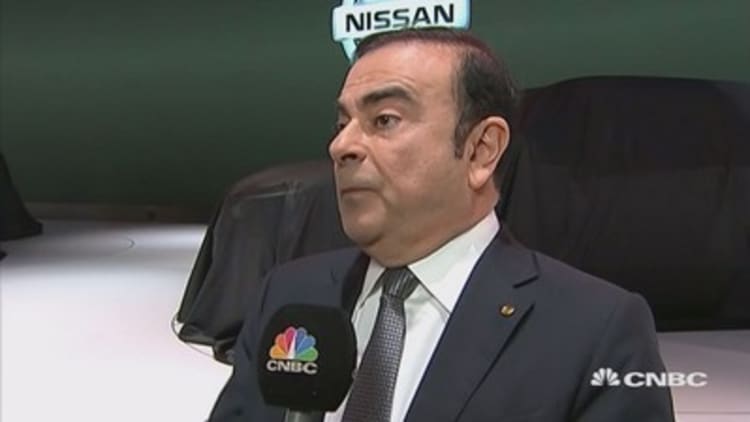
Renault-Nissan has no plans to move production out of Mexico despite speculation that the anticipated revision of the North American Free Trade Agreement (NAFTA) could slap tariffs on trade between the U.S. and Mexico.
The carmaker's chairman and chief executive Carlos Ghosn told CNBC Tuesday that he expects a "rebalancing" of the 23 year old trade deal between the U.S., Mexico and Canada, but does not foresee an outright ban, which could sorely hurt the manufacturer's production plant in Mexico.
Nissan built its first overseas plant in Mexico 50 years ago and now produces more than 800,000 cars there, making it the largest auto manufacturer operating in the country, according to Reuters.
"I'm not so worried because frankly I think NAFTA is so much in the interest of all parties," said Ghosn.
Anti-Mexico rhetoric consumed much of U.S. President Donald Trump's election campaign based on claims that the U.S. has lost businesses and jobs to its southern neighbour. Since entering into office, negotiations have been underway to revise the trilateral deal.
"We are used to dealing with different countries, political change, agreement change, and this is not an exception," said Ghosn, who pledged not to speculate but to react by adjusting its supply chain if necessary once any new NAFTA arrangements have been announced.
In Europe, the firm has assumed third position following PSA's acquisition Monday of Opel from General Motors.
Ghosn said the regulatory environment, which has tightened lately as restrictions on carbon emissions have tightened, has prompted – and will continue to fuel – greater consolidation within the industry. However Renault-Nissan has no current plans to merge with Mitsubishi, in which it acquired a $2.3 billion stake last year.
"I don't think you need a merger in order to make the synergies. Keeping the autonomy of the company and keeping the company separate, you can still make synergies work. That's the road we have taken.
"Yes, we know how to make a merger but for the moment we don't need it and for the moment the conditions are not reunited to see clear advantage for a merger towards the way we work now. "



